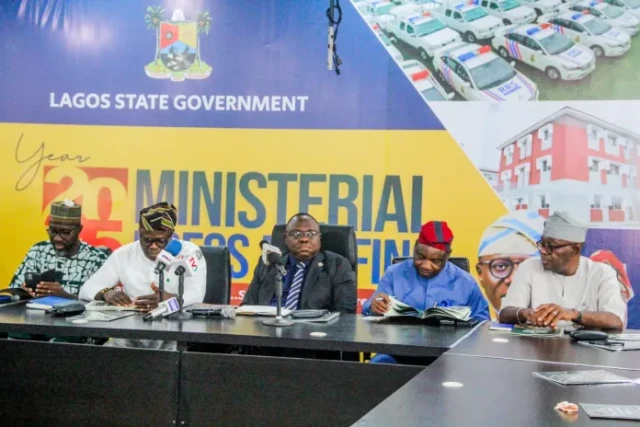LAGOS , Nigeria - The State Government of Lagos, through its Ministry of Energy and Mineral Resources, is committed to providing 24-hour power access for its residents.
They have introduced an ambitious energy plan designed to ensure that local manufacturers can fully access power for their production needs.
This plan aims to not only boost local manufacturing but also enhance universal energy access and improve the reliability of electricity throughout the state.
These goals were revealed during the 2025 Ministerial Press Briefing by Biodun Ogunleye, the Commissioner for Energy and Mineral Resources, who outlined the achievements and plans of the Babajide Sanwo-Olu administration during the event held in Ikeja.
Ogunleye emphasized that a key initiative is the implementation of the Lagos Electricity Market structure, as stipulated by the Lagos State Electricity Law, 2024.
This implementation will include licensing independent electricity distribution companies, promoting embedded generation, and establishing the Lagos Independent System Operator (LISO) to bolster the power ecosystem.
“We are taking intentional steps to transition Lagos into a 24-hour economy through dependable and sustainable energy solutions,” Ogunleye noted.
He further stated that the Ministry aims to complete and energize eight interconnected mini-grids in underserved areas, with ambitions to expand such projects in rural and riverine communities.
“The Lagos Integrated Resource Plan, currently being developed, will direct long-term energy planning and infrastructure investments.”
The commissioner also revealed plans to collaborate with local and international investors for the manufacturing of power equipment like transformers, meters, cables, and switchgears.
According to Ogunleye, this initiative will strengthen the energy value chain, create jobs, enhance industrial capacity, and reduce the State Government's reliance on imports.
Additionally, Lagos plans to activate the Lagos State Electrification Agency (LSEA) and reinforce its partnership with the Rural Electrification Agency under the DARES programme to ensure that no community is left behind during the energy transition.
“Once these plans are realized, Lagos will have firmly established itself as a model for energy transformation at the sub-national level in Africa, leveraging policy, technology, and partnerships to foster prosperity,” concluded the Commissioner.




















